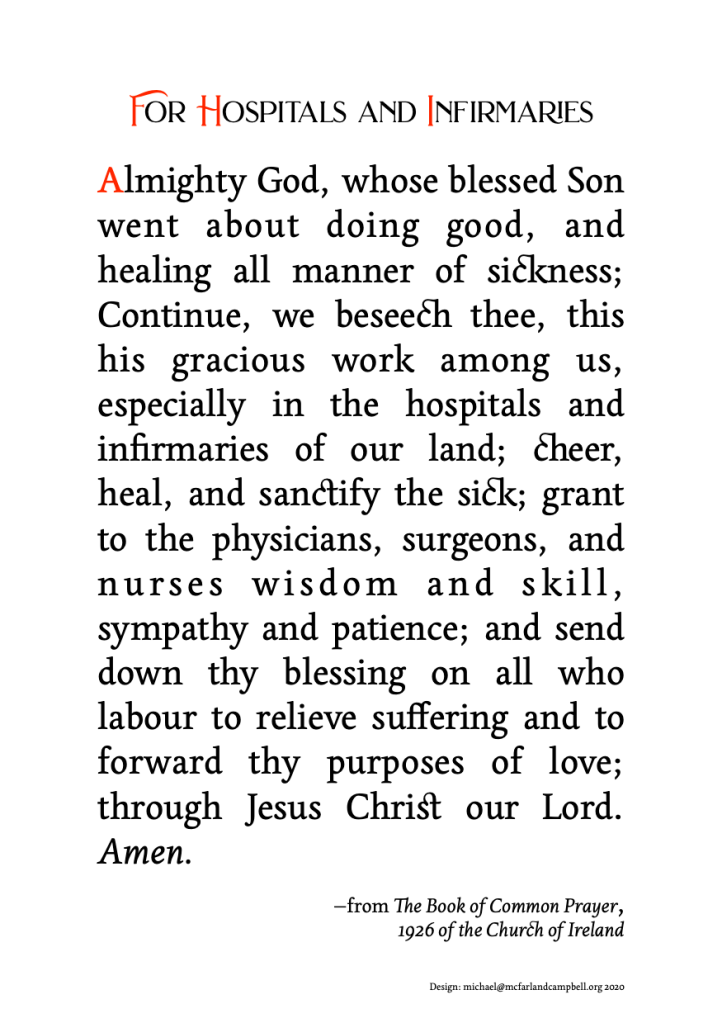Archive for the ‘Prayer’ tag
God is good, patient, and merciful…

Reflection on the readings for the 27th Sunday in Ordinary time (Year A): Isaiah 5:1–7; Psalm 80:8–19; Philippians 4:6–9; Matthew 21:33–43

Today, God reminds us that all good things in life have come from Him. Many people get angry at God and ask why He allows bad things to happen. Fewer people are humble and honest enough to ask themselves a much more important question:
Why do good things happen, why is there any good in the world at all, where did it come from?
We ought to think more about the answer to those questions.
The readings today paint the picture of a vineyard or a garden. Gardens are environments carefully created by gardeners in order to enable plants to be healthy and reach maturity, bearing abundant fruit.
God sees our souls as gardens of virtue. Just as God supplied the vineyard with air, sunlight, water, soil, the wall to protect it, and the tower to guard it, so He supplies each one of us with life, talents, opportunities, family, sacraments, knowledge, conscience, and the guidance of the Church. There is no good thing we an think of that does not owe its origin and existence to God.
One of the best things God gives us is His mercy, His patience.
Today’s readings how how many chances God gives His tenants to do the right thing, to fulfil their duties, to do what they were put there to do. When they do not do what is right, God sends three different messengers, including His own son. In justice, however, He did not need to send any. He could have evicted the selfish stewards right away. But God is patient with our sin and selfishness. He keeps giving us more and more chances, many more than we deserve. He never gives up on us, even though we occasionally give up on ourselves.
The boundless mercy of God is the best evidence of His immense goodness.
The anthropomorphic mistake

One common characteristic of many natural religions that humans have developed throughout history is anthropomorphism. This is a fancy word for saying that without the help of God’s revelation, people tend to think that God (or the gods, if we’re talking about paganism or polytheism) is just like us, only bigger and stronger.
We are all familiar with stories from ancient Greece in which the false gods got into arguments, tried to trick each other, and committed adultery — it was as if they were just like humans, only immortal.
Christianity put an end to anthropomorphism — we now know that although humans are made in the image of God, God is not made in the image of man.
God is unlimited in his knowledge, goodness, wisdom, and power — He’s not just bigger and stronger than us; He is on a different level altogether.
And yet, our fallen human nature still has a tendency to think in terms of anthropomorphism. One such mistake we often make is thinking that God loses his patience with us, just as we lose patience with others (or ourselves).
We think that since we run out of mercy, giving mercy takes a huge effort for us; well then, it must be that way for God too. Not at all. God’s mercy is unlike a giant eye-dropper in heaven, reluctantly and jealously dispensing forgiveness and love in little bits, drip by drip. That is often how we do it. But God’s mercy is more like a waterfall, a rushing mountain spring, an ever-flowing fountain. The only thing that will make us die of thirst is our self-centred refusal to drink from this fountain — just like the stewards in today’s parable.
God’s mercy and goodness is always ready to come into our lives, always. We just have to open the door.
The path to surpassing peace

The more deeply we know this truth and are convinced of it, the more joyful we can be. Joy is the emotion that comes from having or possessing a good thing. Most of the joys of this world are fragile and passing, because the good things of this world are fragile and passing. But God’s goodness, His selfless interest in and unconditional love for us, is never-changing, stable, constant, and eternal. The more we are aware of it and lay claim to it, the more joy we will experience and the more constantly we will experience it, coming gradually to discover what St Paul describes in today’s second reading as
the peace of God that surpasses all understanding.
Philippians 4:7
How can we deepen our knowledge and conviction of God’s limitless goodness?
St Paul says we must become people of prayer: offering to God all our worries; thanking Him for all our gifts; and contemplating all the good and noble things that God has done and with which He has surrounded us.
The society around us, our own selfishness, and the devil try to clog up our minds with complaints and problems, so that we lose sight of the bigger picture.
Only by consciously lifting up our hearts and minds to God, every day, throughout the day, do we gradually come to root our lives in the deep, rich soil of God’s goodness.
How is our prayer life? Does it consist merely of saying prayers? Does it include heart-to-heart conversations with Christ? Does it include time to reflect on God and His plans through reading the Bible and other spiritual books?
Today, as we renew our faith in God’s boundless goodness and mercy, let us also renew our commitment to being Christians worthy of our name — Christians who love Christ enough to spend some time with Him in personal prayer, every single day.
Boosting our faith through prayer
A reflection on the readings for the Eucharist for the Sunday between 3rd and 9th July, Year B.
God permits thorns for a reason
Like all saints, St Paul was not perfect. They, like us, are human beings who had to face problems, hardship, suffering, and temptations. They did not live carefree lives; in fact, it was their very challenges and failings that God used to make them into saints. This is what St Paul is telling us in the Epistle reading. He says that although God has given him extraordinary mystical experiences, God has also given him a “thorn in his flesh, an angel of Satan to beat him.” St Paul prayed repeatedly for God to remove this thorn, but God refused in order “to keep him from being too elated.”
This strange passage raise two questions.
First of all, what was this thorn? Well, no one really knows. Scholars have many theories. It may have been a physical ailment of some kind; a particular temptation like lust or greed; or discouragement he constantly felt from being rejected by his Jewish confreres; or it may have been his fiery temperament which tended to get him into trouble. Whatever it was, it was continual source of pain and irritation to St Paul.
Secondly, why didn’t God take this thorn away? St Paul tells us that it continualy reminded him of his human weakness, inspiring him to depend more fully on God’s grace. This is what he means when he writes, “when I am weak, then I am strong.” This should be a comforting thought for us. It means that our thorns, whatever they may be, are not signs of God’s anger or displeasure, but signs that he is teaching us, as he taught St Paul. Teaching us true wisdom, the wisdom of humility and trust in God.
Doctors and dentists
The ancient Fathers of the Church used to call Our Lord Jesus Christ, the Doctor of the Soul. That’s a comparison that can help us understand this idea.
Sometimes, doctors and dentists have to cause temporary discomfort or pain to bring about long-term health. The cut of a surgeon’s knife hurts, but it leads to healing and strength in the long run. Medicine that a doctor prescribes can taste bitter and harsh, yet this same medicine will cure the sickness that is much more dangerous. The thorn that St Paul mentions in the Epistle is like the surgeon’s knife or the bitter medicine. As painful as it is, he recognises that God is permitting it for a reason: to cure him of his tendency to arrogance and self-absorption. Likewise, when God allows difficulties to plague us, he is not absent from them, but at work through them, like a good doctor with a scalpel.
Once we learn this lesson, we will be able to say with St Patrick,
“Whether I receive good or ill, I return thanks equally to God, who taught me always to trust him unreservedly.”
Confessions of St Patrick
Boosting our faith through prayer
We can only experience the interior peace and freedom that Christ wants for us when we learn to accept our limitations, the thorns that God permits in our lives.
This was not an easy thing for St Paul. It was only after many years of suffering and working for Christ’s Kingdom that he was able to write this beautiful sentence: “Therefore, I am content with weaknesses, insults, hardships, persecutions, and constraints, for the sake of Christ; for when I am weak, then I am strong.”
Accepting limitations and the thorns that God permits is not easy for us either. It is only possible, if we become men and women of prayer.
Prayer connects us to the source of all wisdom and strength, God himself. In the midst of his pain, where did St Paul turn? He turned to prayer, “Three times I begged the Lord about this…” And it was through his prayer that God spoke to his heart, telling him, “My grace is sufficient for you, for power is made perfect in weakness.” Prayer is for the soul, what breathing is for the body. In prayer we receive supernatural oxygen that keeps our faith healthy, and only healthy faith makes visible the hidden wisdom of God.
There are many resources around to assist us with our prayer. There is the Church of Ireland daily worship app, or that of the Church of England. Others may find the Universalis app which has the daily prayer of the Roman Catholic Church useful as well. Of course, there is the Book of Common Prayer, which has simple offices that we can say.
We may find ourselves able to use the “Jesus Prayer”,
Jesus Christ, son of God, have mercy on me, a sinner.
Many people say this over and over and over again daily as they go about their daily lives. Others find the Rosary of the Blessed Virgin Mary helpful. Whatever prayer we use, it is centred on Christ, and through Him we find our support and receive our spiritual oxygen.
In the Gospel today, St Mark tells us that Jesus “was not able to work any mighty deed” in Nazareth, “because of their lack of faith.”
If we make prayer a high priority, we will never lack faith. God will be able to work many mighty deeds in our lives, even in the midst of our thorns. As Jesus renews his commitments to us in the Eucharist, let us thank Him for our thorns, and ask Him to teach us to pray.
Readings
Ezekiel 2: 1–5; Psalm 123; 2 Corinthians 12: 2–10; Mark 6: 1–13
Remembrance: from War to Peace
For many nations, November is a time to remember those who have died in military service, in peace time and in war. From the Armistice of 11 November 1918 which ended the First World War, we have Remembrance Day as a time to reflect of the sin of war and conflict. It is a time for Christians to pray for the peace of the world, and through we have often failed in the Lord’s service, through his love, we work for a world renewed through justice and peace.
From earliest times, Christians have served in the military and they are men and women under authority, just as the centurion who asked Jesus to heal his servant (Matthew 8:5–13). Mindful of the teaching of Jesus Christ, faithful military service is an honourable tradition, which puts the needs of others before oneself and seeks to work for peace, and to defend freedom. Many people serving in the military today are also deployed for humanitarian assistance. They help to work for that peaceable kingdom which the Lord wills for our world.
Please pray for the men and women who serve in the military worldwide, and for chaplains who minister to them.
By The Rev’d Alex Bennett CF, Chaplain, British Army, from the USPG Prayer Diary Nov 2020 to Jan 2021
For hospitals and infirmaries
Particularly during the Covid-19 situation, Christians may find that they want to pray for the hospitals and infirmaries of our land. In the Church of Ireland’s Book of Common Prayer, there is a beautiful prayer to cover this.














